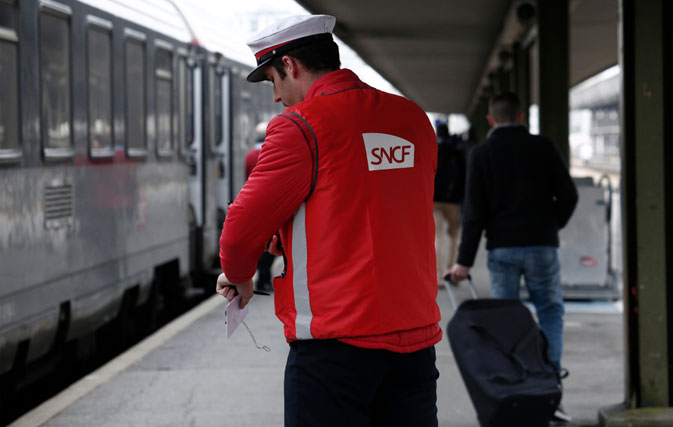PARIS — A major French railway strike brought the country’s famed high-speed trains to a halt Tuesday, leaving passengers stranded or scrambling for other options – and posing the biggest test so far for President Emmanuel Macron’s economic strategy.
The SNCF national rail authority said only about 12 per cent of trains are running Tuesday, in the first of a series of strikes that are set to last three months. Traffic was also disrupted on Eurostar lines to Britain as well as trains to Germany, though most were running as usual.
There was further disruption in the air, with Air France cancelling a quarter of its flights Tuesday amid a strike over pay.
And there were strikes or demonstrations in other sectors. Students, for example, are blocking campuses to protest plans to allow selection in state universities, while garbage collectors are on strike to protest worsening working conditions.
All in all, it’s one of the worst days of industrial strife seen in France since Macron was elected president nearly a year ago. Macron has made reforming France’s economy a central plank of his presidency. Many of his plans, particularly to the labour market, are meeting with increasing opposition, particularly from France’s unions.
The most visible problems on Tuesday were on the railway, where SNCF said 77% of train drivers were on strike. The total proportion of rail workers on strike – including employees in trains and on the ground – is 33.9%, the company detailed in a statement.
Passengers are ditching railways, hitching rides on traffic-clogged roads and sharing travel tips online. At the Gare de Lyon station in eastern Paris, platforms were so packed that commuters spilled over onto the tracks as they waited for elusive trains.
“Really this is catastrophic. Something needs to be done. We are the victims. We haven’t done anything. We need to get to work like everyone else,” said 56-year-old commuter Aziza Fleris.
“I was really positive this morning, but now – you should have seen what happened on the train. Some people felt unwell, women were crying. Children. This isn’t normal.”
Rail workers are protesting plans to eliminate a special status that they’ve enjoyed for decades. The “cheminot” status effectively guarantees jobs for life and other benefits, in keeping with the image of France’s railways as an essential pillar of the country’s infrastructure and its public services.
Macron’s government says that’s no longer tenable, because today’s globalized and increasingly automated economy favours more flexible workforces. In addition, with European Union rules requiring all member states to open up government-run railways to competition, the government argues that the special status puts SNCF at a disadvantage compared to potential private competitors.
Commuters were angry at the overall situation but not necessarily taking sides. SNCF has been warning travellers for several days to postpone their trips.
